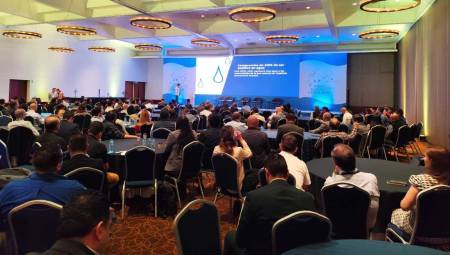
The Index, prepared by The Lisbon Council, Ecofys and Quintel Intelligence and commissioned by Royal Philips, is the first global report to rank countries by their energy productivity, based on their economic performance per unit of energy consumed. The report warns that the current rate of improvement in energy productivity – around 1.3% each year globally – is too slow to keep pace with growing energy demand.
The report reveals that most of the energy productivity gains will have to come from improvements in residential and non-residential buildings. A simple example of energy productivity is boiling an egg, where only 2% of the energy consumed is used to produce the hard-boiled egg. Similarly, approximately 98% of all the energy we use in the production process is being wasted.
Only by increasing the use of technology available today, such as energy-saving devices , LED lighting and insulation, could European households reduce their energy bills by a third. On the other hand, total energy consumption in the EU could be reduced by 35% by doubling the rate of improvement in the region's energy productivity from about 1.5% to 3% per year by 2030.
The report urges politicians to set more ambitious targets to improve energy productivity. It shows that high levels of energy efficiency will contribute to global economic growth: doubling energy productivity could create more than 6 million jobs globally by 2020 and reduce the global fossil fuel bill by more than €2 trillion by 2030. To achieve this goal, it is important to continue making progress in the world's six largest economies – the United States, Russia, China, Japan, India and the EU – as they account for 60% of global GDP and 65% of global energy demand.
Highlights of global energy productivity:
• The index ranks countries based on the GDP they produce for each unit of energy they consume. This differs from energy efficiency, which means using less energy to offer the same service.
• Hong Kong topped the list with an energy productivity of €456 billion of GDP per hexajoule (one quintillion – 1018 – Joules) consumed. Cuba came in second, with 365 billion euros of GDP per hexajuly. Colombia, Singapore and Switzerland make up the top five.
• The UK is ranked 26th, behind countries such as Sri Lanka, Dominican Republic, Gabon, Philippines, and Albania. Other leading nations lagged further behind with Germany ranked 35th, the Netherlands 40th, Japan 51st, France 56th and India 72nd.
• The United States, which has committed to doubling its energy productivity by 2030, is in 87th position. China in 111th place and Russia in 114th place – both countries with energy productivity well below the global average of 143 billion euros.















